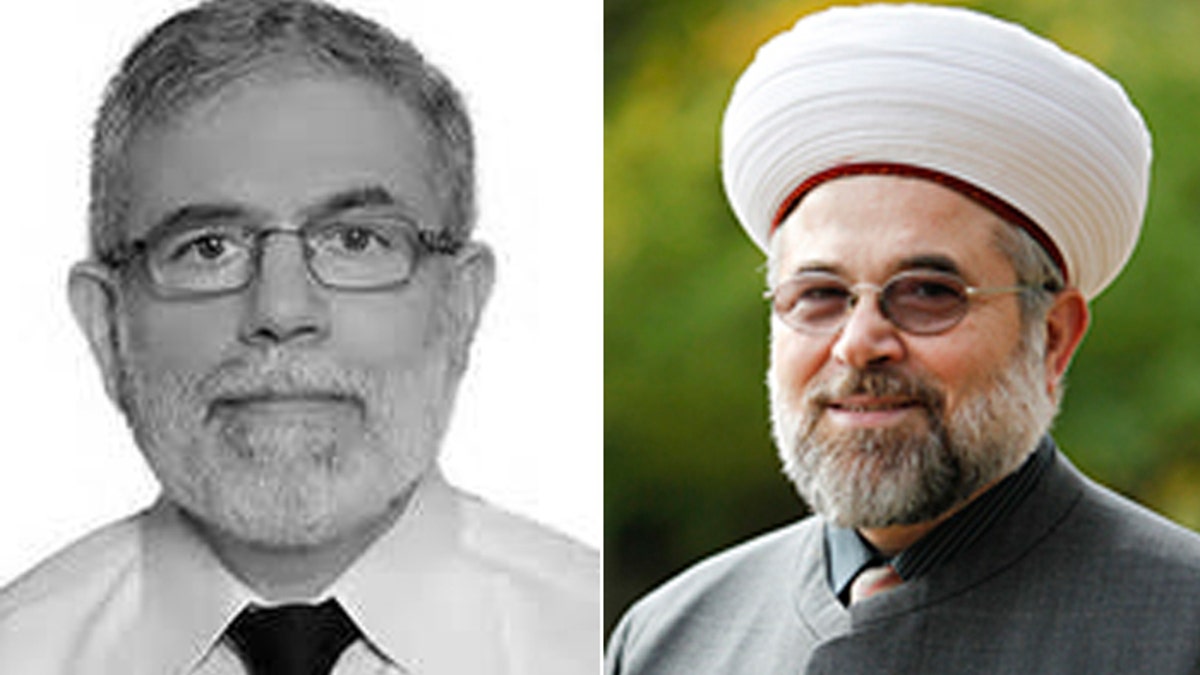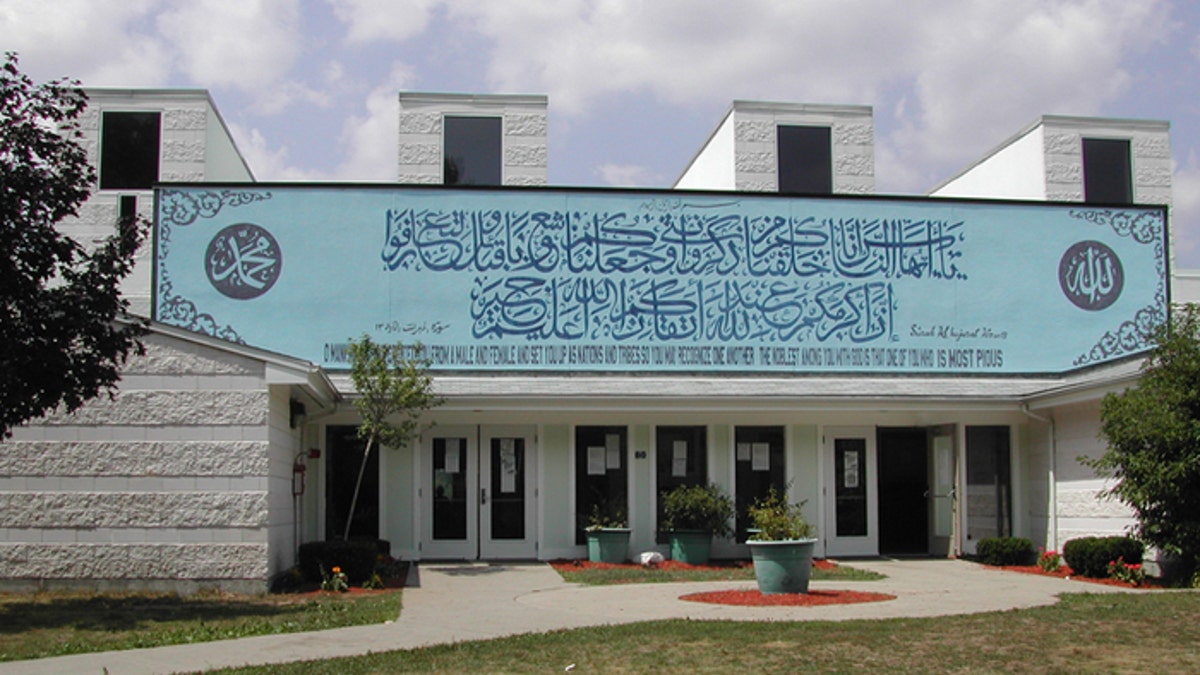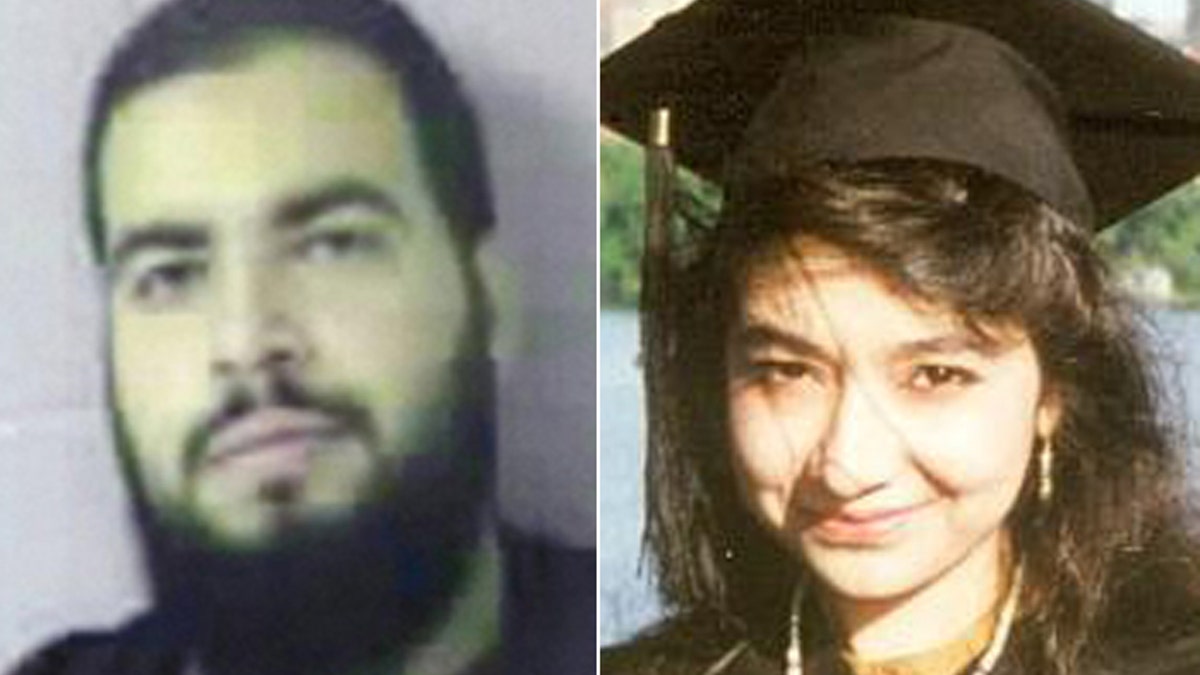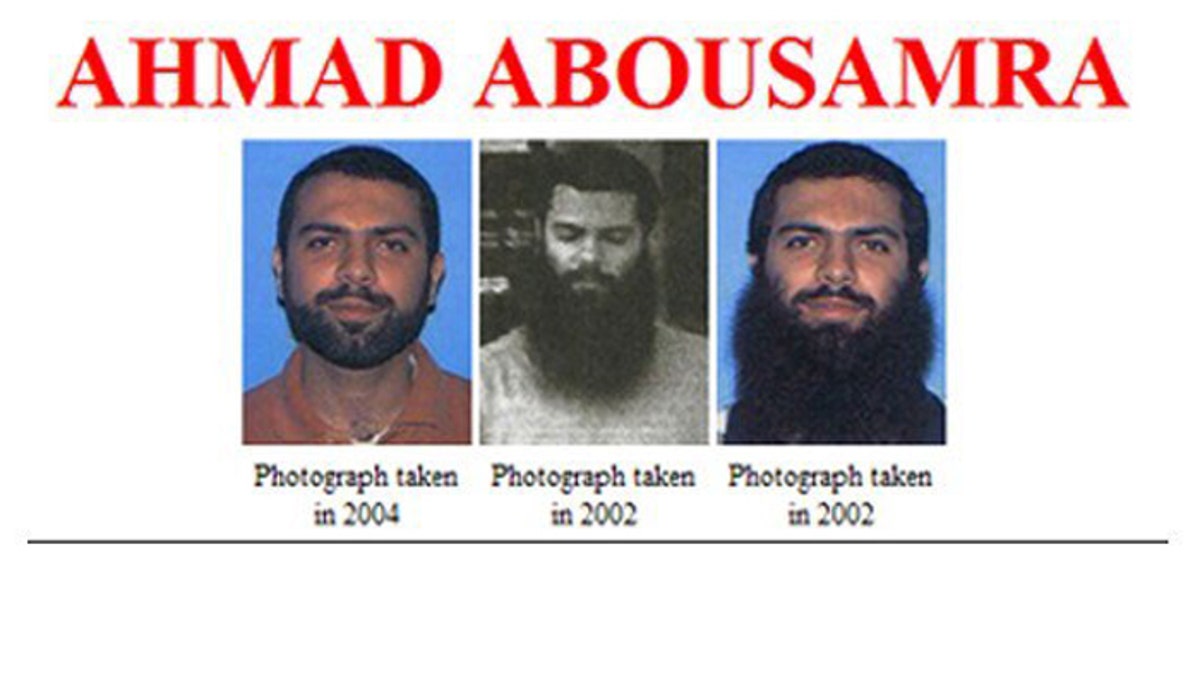
Abousamra, (l.), wanted Imam Talal Eid, (r.), replaced by a more radical preacher, according to Eid. (Massachusetts General Hospital, Brandeis University)
A moderate imam who raised alarms more than a decade ago about a radical shift at two controversial Boston mosques he led for decades says he was ousted for his efforts by a local doctor whose son joined ISIS and replaced by a man now with the infamous Pakistani terrorist group behind the 2008 Mumbai bombings.
Imam Talal Eid told FoxNews.com that creeping radicalism put him increasingly at odds in the late 1990s with the board of directors of the Islamic Center of New England, where he served from 1982 until 2005. But when Eid, nominally in charge of the religious teaching at the center’s mosques in Sharon and Quincy, resisted, he was left in fear for his safety and eventually driven out by Dr. Abdul-badi Abousamra, at the time a prominent endocrinologist at Massachusetts General Hospital and president of the 1,500-member Center.
“At times, I was fearful for my safety,” said Eid, a former member of the U.S. Commission on International Religious Freedom who now runs a mosque in Toledo, Ohio. “When I would stand up for what I believed in, and there was a clash, you see how I could be scared.”
“I was pushing for one thing, and the board was pushing for something else, and I was alone facing them.”
Abousamra, who has since moved to Doha and could not be reached for comment, was one of the Boston Muslim community's most powerful and prominent figures in the late 1990s and early 2000s. In addition to being the center's president, he was vice president of the Muslim American Society of Boston, which ran the Islamic Society of Boston, a Cambridge mosque that shared many members with those run by the Islamic Center of New England.
All three mosques have ties to a host of known and suspected terrorists, including Dzhokhar and Tamerlan Tsarnaev, the brothers behind the 2013 Boston Marathon bombing; Aafia Siddiqui, aka “Lady Al Qaeda," the Pakistani woman and Usama bin Laden associate now serving an 86-year federal sentence; and, more recently, Usaama Rahim, the 26-year-old man killed by police last month after brandishing a knife and allegedly plotting to behead Boston cops.
Even as Abousamra was exerting a radical influence on the leadership of mosques he helped run, law enforcement authorities say his son, a Northeastern University graduate raised in the Boston suburb of Stoughton, was training in Middle Eastern terror camps, aiding Al Qaeda and plotting attacks on U.S. soil. Ahamad Abousamra left Boston for Syria in 2006 while under investigation for terror-related charges that would later lead to an indictment, and is now believed to be running ISIS’ social media operation.
While mosques around the nation have disavowed terrorism, with many leaders working with law enforcement authorities to report suspicious activity, the infighting at the Boston mosque described by Eid shows that behind the scenes, mosque leaders are not always on the same page.

This mosque in Sharon, Mass., is one of two run by the Islamic Center of New England, and one of three tied to a doctor accused of promoting a radical brand of Islam. (File)
When Eid was ousted from the center, it soon became clear which direction leaders wanted to go. He was replaced by Muhammad Hafiz Masood, an assistant imam who had been forced on him in 1998 by Abousamra and who was known for fiery sermons easily interpreted as promoting violence.
“This is when I started to fear for my safety,” Eid said. “I was pushing for one thing, and the board was pushing for something else, and I was alone facing them.”
A year after Eid left, Masood fled the U.S. after being arrested for visa fraud. He resurfaced in Pakistan, where he is now spokesman for the Pakistani terrorist organization Jamaat-ud-Dawah, a group founded by his brother, Hafiz Muhammad Saeed. Saeed also founded Lashkar-e-Taiba, the Pakistani terrorist group behind the 2008 coordinated bombings in Mumbai that killed 164 and wounded hundreds more. Law enforcement sources say the two groups are one and the same.
Eid said he was not aware at the time of the radicalization of the younger Abousamra, which included a 2002 trip to Yemen where he trained at a terrorist camp with Massachusetts pal Tarek Mehanna. Abousamra fled to Syria in 2006, but in 2009 he and Mehanna were indicted on federal terrorism charges, including providing material support to Al Qaeda in Iraq – the precursor of ISIS – and an aborted plot to attack a suburban Massachusetts mall. Mehanna is serving a 17-year federal prison sentence.

Tarek Mehanna, (l.), and Aafia Siddiqui, aka "Lady Al Qaeda," are both former worshipers at the mosques, and now federal inmates serving sentences for terrorism convictions. (Sudbury Police, Reuters)
Abousamra, a graduate of Northeastern University who grew up in the affluent suburb of Stoughton, is said to be a computer whiz who has risen to the top of ISIS’ media operation. He is rumored to have been killed in a recent airstrike in Syria, but the FBI, which has a $50,000 bounty on him, could not confirm that.
"Although aware of the reports, the United States government has not yet confirmed any change in the status of Ahmad Abousamra,” the FBI said in a statement to FoxNews.com. “He will remain on the FBI’s Most Wanted Terrorists List until the time a confirmation in change of status is made.”
No one from the center’s current administration returned repeated requests for comment from FoxNews.com. While it is unclear whether the radicalizing impact of Masood and the senior Abousamra on the three Boston-area mosques lingers today, the non-profit organization Americans for Peace and Tolerance believes many of Masood’s supporters remain in leadership roles in the Boston Muslim community.

“There are many dots connecting Masood and his associates to terrorist activity in the city, past and present,” Americans for Peace and Tolerance Director of Research Ilya Feoktistov said. “With two ISIS-inspired terrorist plots thwarted in the Boston area in the past two months, the threat of radical Islamic terrorism to the city continues to grow.”
Eid stressed that the vast majority of Muslims at the Center’s mosques and at houses of worship throughout the nation attend for any other reason than to pray and reflect on the message of the Koran. It is up to leaders to ensure that moderate voices like his are not drowned out by the shrill calls to radicalism, he said.
“Do we need to wait for a tragedy to happen?” Eid said. “We need to allow more moderate Muslim voices so that life can go smoothly in our society.”
Editor's note: The Islamic Center of New England issued the following statement subsequent and in response to the above story's publication: "Rather than stemming from ideological issues, the dispute between Imam Eid and the Center was based on an employment disagreement concerning which a US court ruled in favor of ICNE. We repudiate any attempt to drag our institution into defensive distancing from individuals whom, we note, have never been charged or convicted of any terrorism-related offenses. The Islamic Center of New England's doctrine and teachings fully respect the rule of American law and the sanctity of human life, and we have always unequivocally condemned all acts of terrorism on human and religious grounds."









































